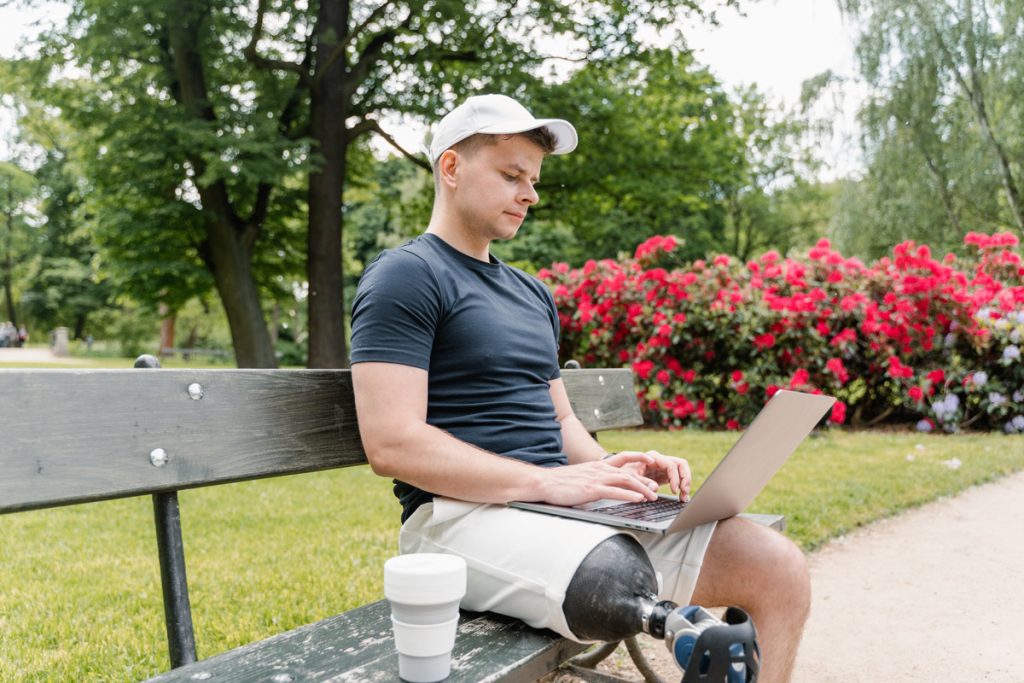Strategies for Coping
When combat veterans end their service and come home, they often leave one battle behind to begin another. For many veterans, the mental health battle is one they face alone. Some will experience difficult emotions such as anxiety, guilt, anger, and feelings of worthlessness. These painful emotions can develop into mental health disorders that make it hard to integrate and function in their new lives after military service.
The Impact of Combat Exposure on Veterans’ Mental Health
War is devastating. The men and women serving our country experience many unpleasant realities when deployed to combat zones. Research shows that military veterans deployed to combat areas are at significantly increased risk of developing mental health disorders.
Experiencing combat can cause psychological wounds just as damaging as physical ones. The problem is that although physical wounds may be readily apparent, mental injuries are not. Moreover, the social stigma surrounding mental health disorders affects veterans even more, as the military has a culture of stoicism that is hard to shed after service.
The stress of combat exposure can lead to multiple mental health conditions that often appear together and mutually reinforce the adverse effects on individuals.
Mental Health Conditions Associated with Combat Exposure
- Post-Traumatic Stress Disorder (PTSD): PTSD is a mental health condition that develops when a person has witnessed or experienced a traumatic event. The condition is alarmingly common among veterans with combat exposure. It can cause veterans to experience flashbacks that cause them to relive the traumatic event, vivid nightmares that can make it difficult to maintain sleep routines, and overwhelming anxiety about the traumatic experience. All of these symptoms can make everyday life very difficult for veterans.
- Depression: Veterans exposed to combat have a higher rate of depression, which can result in a variety of symptoms such as extended periods of sadness or feeling hollow and hopeless, a loss of interest in things that used to provide pleasure, low energy, and general fatigue, self-imposed isolation, and suicidal thoughts.
- Anxiety: Veterans with combat exposure may also develop anxiety disorders, which cause them to avoid social situations, feel a sense of impending doom (even when there is no reason to), be easily irritable or agitated, have difficulty concentrating, and have intrusive thoughts that cause significant distress.
- Substance Abuse: Many veterans with combat experience turn to substances to provide an escape from the trauma they experienced. Substance use quickly becomes a toxic coping mechanism with many adverse health and social consequences, especially for traumatized vets who have not developed more positive coping strategies.
While not all veterans with combat experience develop a mental health condition, many do. Those who do, need to develop positive coping strategies to keep them from spiraling into pits of despair.
Thankfully, there are many effective ways that veterans can cope with and heal their emotional scars.
Coping Strategies for Veterans
- Stress Management: Partaking in activities that promote stable mental health, including mindfulness, meditation, and regular exercise, can lead to overall improved well-being.
- Build Support Networks: Having someone to lean on can be crucial for keeping veterans with combat exposure from falling into negative behavior patterns. Few are better equipped to provide this support than other veterans with similar experiences. Strength in numbers is a common tactic promoted within the military, and its benefits can carry over into the civilian world. Joining support groups with other veterans can help build a foundation of solidarity where each veteran holds another accountable.
- Getting Help from a Professional: Seeking professional help from experts such as therapists or psychiatrists is an excellent way for veterans to receive structured treatment strategies such as cognitive-behavioral therapy and medication management. These professional interventions can be powerful, long-term solutions for managing mental health disorders.
- Engage in a Routine: Adhering to structured routines is an effective way to manage mental health conditions for civilians, and veterans are no different. Planning activities and setting goals with a charted path can keep veterans grounded in their daily lives and equip them with a sense of purpose and control over their lives.
- Support from Loved Ones: Friends and family can provide an essential foundation of love and support for veterans that experience mental health conditions. Knowing they have somewhere to turn whenever needed can give veterans a better sense of belonging.
- Pursue Hobbies: Engaging in recreational activities or hobbies is a positive outlet for veterans to develop or regain their sense of identity. It can also give them something to do with idle time and prevent them from turning to substance use.
It’s Important to Get Help
Every veteran’s needs are different and require patience and understanding. Veterans with traumatic combat experiences need to be aware that it’s ok not to be ok and that battling mental health conditions and seeking help is a show of strength, not weakness.
While veterans with combat exposure may deal with challenging mental health disorders, there is always a path forward. Coming from a culture of stoicism and perseverance, many veterans hesitate to reach out for help with mental health, seeing it as a sign of weakness.
However, by recognizing the challenges veterans face, offering them first-hand support, and encouraging them to seek out positive coping strategies, we can help them carve a path to a brighter tomorrow.
If you or a loved one are a veteran who has experienced combat and is struggling with mental health, a great first step is reaching out to VA mental health services.
If you or someone you know experiences mental health issues, it is important to seek help from a qualified professional. Our Resource Specialists can help you find expert mental health resources to recover in your community. Contact us now for more information on this free service to our users.
About the Author: Claire Szewczyk is a Digital Content Coordinator for Hill & Ponton, PA, in Florida. She is a former US Airforce civilian employee who worked at Hill Air Force Base in Layton, UT, and spent several years working with the Department of Veterans Affairs audiology programs in Salt Lake City, UT, and Pocatello, ID. She enjoys working with the Veteran population and keeping them up to date with the information they need most.
Photo by MART PRODUCTION: https://www.pexels.com/photo/a-man-sitting-on-bench-while-using-a-laptop-8436976/
July is BIPOC Mental Health Month
Observed each July and formerly recognized as National Minority Mental Health Awareness Month, BIPOC Mental Health Month highlights the unique mental health challenges and needs of Black, Indigenous, and other People of Color (BIPOC). Please join us in recognizing the struggles of BIPOC and bringing awareness to the need for adequate, accessible, culturally relevant mental health treatment, care, and services.
Black, Latino, Asian, and Native American people have higher rates of some mental health disorders and face greater disparities in getting help than White people, largely due to lack of access to services. With proper care, 70 – 90% of people with mental illness experience significant reduction in symptoms and improved quality of life. However, there are barriers to individuals seeking help for themselves or loved ones: access to and cost of treatment, stigma, and availability of local, culturally appropriate mental health care resources.
In 2022, Laurel House, the sponsor of rtor.org, established the Social Work Racial Equity Scholarship. The goal of the Scholarship is to cultivate more Black and Latino social workers who are committed to social change and increasing access to mental health care treatment by communities of color. Each year, a $10,000 scholarship is awarded to a Black or Latino student from Connecticut enrolled in a Master of Social Work program in Connecticut or New York. Two runner-up prizes of $1,000 and $500 are also awarded.
www.rtor.org and its sponsor Laurel House are committed to the advancement of racial equity and social justice and to making mental health services available to all.
The opinions and views expressed in any guest blog post do not necessarily reflect those of www.rtor.org or its sponsor, Laurel House, Inc. The author and www.rtor.org have no affiliations with any products or services mentioned in the article or linked to therein. Guest Authors may have affiliations to products mentioned or linked to in their author bios.
Recommended for You
- Veterans and Addiction Recovery: How Families Can Support Their Service Member’s Healing Journey - July 14, 2025
- Trauma-Aware Yoga: A Gentle Path to Healing and Recovery - July 10, 2025
- Why Eating Disorders in Men Are Often Missed - July 3, 2025





